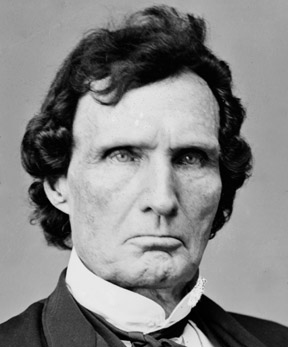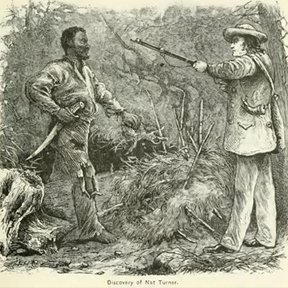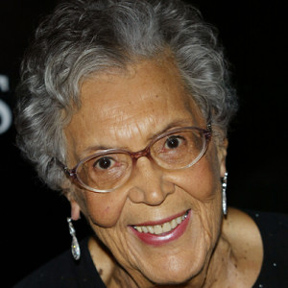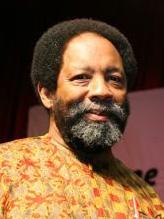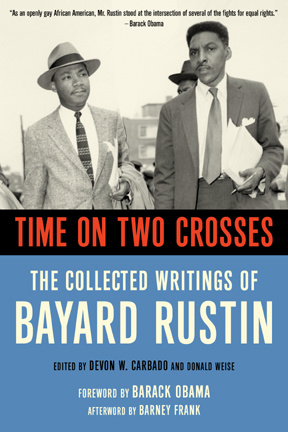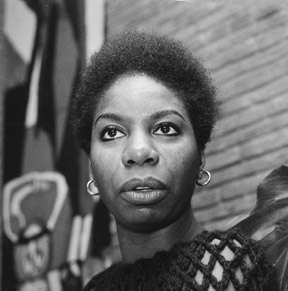 I remember sitting impatiently in my elementary school’s auditorium watching some follow students modern dance to Nina Simone’s “Young, Gifted, and Black.” While Simone (pictured left) sang, “We must begin to tell our young,” I didn’t know there was anything wrong with being Black and that I needed some Black-directed motivation to do well.
I remember sitting impatiently in my elementary school’s auditorium watching some follow students modern dance to Nina Simone’s “Young, Gifted, and Black.” While Simone (pictured left) sang, “We must begin to tell our young,” I didn’t know there was anything wrong with being Black and that I needed some Black-directed motivation to do well.It’s 40 years later and I am much more aware of the issues surrounding being Black in America and in the world. My generation and at least four others have heard Simone’s message, but the 1970 issues still plague us. What’s up with that?
Who in 1970 would think that with a Black president young Black boys would still need a role model to demonstrate that speaking standard English is not the same as being “White,” “punkish,” or even, “gay”?
Who in 1970 would think that with a Black screenwriter, director, and producer (Shonda Rhimes, pictured below) ruling the Thursday night line up on the American Broadcasting System at 8p, 9p, and 10p EST, 40% of DC's 9th-graders won't graduate from high school on time?
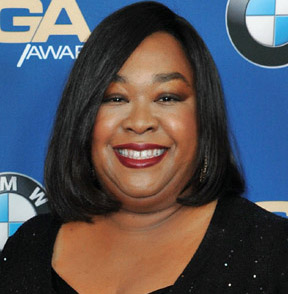 Who in 1970 would think with the nation’s first Black attorney general (top cop), scores of Black police chiefs and scores of Black cops, and Blacks who have the power to vote and Blacks who sit on police boards, that some Blacks would feel the need to resort to burning and looting their own town - - and increasing their insurance rates and limiting the number of jobs in their community - - to have their voices represented?
Who in 1970 would think with the nation’s first Black attorney general (top cop), scores of Black police chiefs and scores of Black cops, and Blacks who have the power to vote and Blacks who sit on police boards, that some Blacks would feel the need to resort to burning and looting their own town - - and increasing their insurance rates and limiting the number of jobs in their community - - to have their voices represented?Who in 1970 would think after the release of the Kerner Commission report in 1968 that we would spin our wheels trying to figure out why Blacks are frustrated with the murder of Michael Brown in Ferguson, Missouri and other unarmed Black men by White cops across the USA? (Among other things, the Kerner report recommended for government programs to hire more diverse and sensitive police officers.)
Who in 1970 (or in 1974) would think when Diahann Carrol played Claudine, a domestic worker trying to provide for her six children in Harlem, that one Black woman , Susan Rice, would follow another, Condoleezza Rice, and move beyond domestic issues and help mold American foreign policy?
This is not 1970, with a more educated and connected Black America and more Black officials we can more easily force accountability than our grandparents and even parents on those responsible for solving or at lease easing these issues. Sitting on the sidelines is not an option for officials or the public.
Even passing laws and changing images will not give us the freedom we seek. As pan-Africanist Malcolm X once said, “Freedom is something you have to do yourself.” Or, as Dr. King once said, “If the Negro is to be free, he must move down into the inner resources of his own soul and sign with a pen and ink of self-assertive manhood his own Emancipation Proclamation.”




